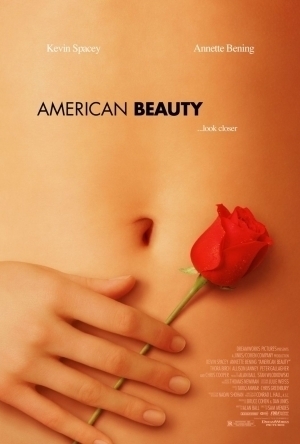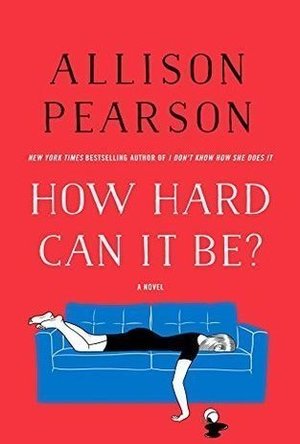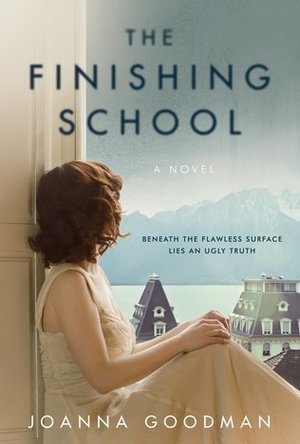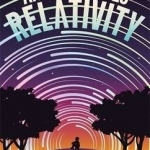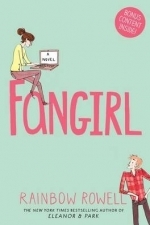Search
Search results

Shanghai Mahjong
Games and Entertainment
App
WINNER "BEST GAME" 2009 3rd PLACE WINNER "BEST APP EVER" 2010 "Quite honestly, if you enjoy the game...
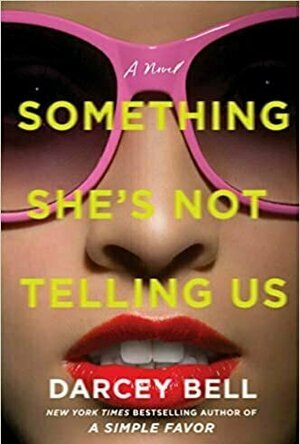
Something She's Not Telling Us
Book
Named most anticipated book of 2020 by Cosmopolitan, Women's Wear Daily, Woman's Day, She Reads, The...
Darren (1599 KP) rated American Beauty (1999) in Movies
Jun 20, 2019
Story: American Beauty starts narration from our lead Lester Burnham (Spacey) explaining his life and that he will be dead in a year. Lester lives through the same old routine and is overall tired of his life. Lester is married to Carolyn (Bening) a real estate agent and has a teenage daughter Jane (Birch) who is struggling with the typical teenage problems. Lester is being pressured by his new boss who he thinks has no experience in the field.
Lester & Carolyn decide to take more interest in their daughter’s life which includes going to watch her cheer leading performance where Lester starts getting an instant fascination with fellow cheerleader Angela Hayes (Suvari). The Burnham’s have just got new neighbours in the Fitts, Colonel (Cooper) and his son Ricky (Bentley) who has an obsession with filming his everyday life. What follows is a look into suburban life.
American Beauty manages to balance every character to end up telling a story of everyday life and how it can change because the people closest to you really don’t know what you are up too. We get to look closer are how the perception of a person can hide the reality that is going on in the life and we get to see the different things that could happen. It is hard to really discuss too much about this film because I have looked into the characters closer next and this film is very much character driven which helps the story shine through. (10/10)
Actor Review
Kevin Spacey: Lester Burnham is an average man who is tired of the same old routine and decides to break out, he gets himself fired, starts taking drugs all while obsessing over his daughters friend. Kevin gives a brilliant performance but as you would expect from him. (10/10)
lester
Annette Bening: Carolyn Burnham is a real estate agent who puts on a brave face all while struggling with her own problems leading to her having an affair as her relationship with Lester starts to get stretched. Annette shines here with mixed emotions about Lester through the film. (10/10)
caroluyn
Thora Birch: Jane Burnham is the moodiest cheerleader ever who doesn’t seem to get the attention a cheerleader gets from the guys, she is best friends most beautiful girl in school who gets all the attention, but Jane does attract the new neighbour who helps her come out of her shell. Thora gives a great performance showing that she was ready to break through in the role. (9/10)
jane
Wes Bentley: Ricky Fitts is the new neighbour that could be considered weird because of his obsession with filming everything in life, he also ends up being a drug dealer and the one that Lester uses, all while dealing with an over aggressive father. Wes shows all his talent here but it is a shame this is the highlight of his career to date. (9/10)
ricky
Mena Suvari: Angela Hayes is the beautiful girl from school that thinks all the guys want her but when Lester takes a shine to her we learn the truth about her nature. Mena comes away from her American Pie role with this much more adult role showing she didn’t need to just be a teen comedy star. (9/10)
angela
Chris Cooper: Colonel Fitts is the strict father of Ricky who hates everything that is different to his way of thinking, he is a generation behind but he really just wants to protect his son. Chris does a great job as the strict father because we just don’t know what his character will do next. (9/10)
Support Cast: American Beauty doesn’t have the biggest supporting cast with most just turning up in the odd scene while we focus on the main cast through the film.
Director Review: Sam Mendes – Sam burst onto the scene with this stunning piece of directing that will always be known as a classic. (10/10)
Drama: American Beauty shows the lives of these six people and manages to make us care about them all. (10/10)
Romance: American Beauty shows different levels of romance, we get a blossoming starting one, we have a long term one falling apart and we get to see the unavailable ones. (9/10)
Settings: American Beauty gives everything a realistic setting for the story being told through the film. (9/10)
Suggestion: American Beauty is absolute must watch for anyone, it will always go down as a classic in the history of film. (Must Watch)
Best Part: Lester getting fired.
Worst Part: While it is a brilliant drama, the casual fans will find this harder to find interesting.
Funniest Scene: Lester reacting to Angela spending the night.
Favourite Quote: Lester ‘Remember those posters that said, “Today is the first day of the rest of your life”? Well, that’s true of every day but one – the day you die.’
Believability: I do think this has plenty of realistic ideas of relationships but I do think the end wouldn’t happen. (8/10)
Chances of Tears: No (0/10)
Chances of Sequel: No
Post Credits Scene: No
Oscar Chances: Won 5 Oscars including Best Picture, Best Actor, Dest Directing, Best Cinematography and Best Screenplay. It was also nominated for another 3.
Box Office: $356 Million
Budget: $15 Million
Runtime: 2 Hours 2 Minutes
Tagline: … look closer
Trivia: Both Oscar winners Kevin Spacey and Chris Cooper got their film career starts playing New York subway criminals. Spacey played an untitled mugger in Heartburn. Cooper played a pyromaniac in Money Train.
Overall: American Beauty is a classic that will always be remembered once you have seen it.
https://moviesreview101.com/2015/08/01/american-beauty-1999/
Lester & Carolyn decide to take more interest in their daughter’s life which includes going to watch her cheer leading performance where Lester starts getting an instant fascination with fellow cheerleader Angela Hayes (Suvari). The Burnham’s have just got new neighbours in the Fitts, Colonel (Cooper) and his son Ricky (Bentley) who has an obsession with filming his everyday life. What follows is a look into suburban life.
American Beauty manages to balance every character to end up telling a story of everyday life and how it can change because the people closest to you really don’t know what you are up too. We get to look closer are how the perception of a person can hide the reality that is going on in the life and we get to see the different things that could happen. It is hard to really discuss too much about this film because I have looked into the characters closer next and this film is very much character driven which helps the story shine through. (10/10)
Actor Review
Kevin Spacey: Lester Burnham is an average man who is tired of the same old routine and decides to break out, he gets himself fired, starts taking drugs all while obsessing over his daughters friend. Kevin gives a brilliant performance but as you would expect from him. (10/10)
lester
Annette Bening: Carolyn Burnham is a real estate agent who puts on a brave face all while struggling with her own problems leading to her having an affair as her relationship with Lester starts to get stretched. Annette shines here with mixed emotions about Lester through the film. (10/10)
caroluyn
Thora Birch: Jane Burnham is the moodiest cheerleader ever who doesn’t seem to get the attention a cheerleader gets from the guys, she is best friends most beautiful girl in school who gets all the attention, but Jane does attract the new neighbour who helps her come out of her shell. Thora gives a great performance showing that she was ready to break through in the role. (9/10)
jane
Wes Bentley: Ricky Fitts is the new neighbour that could be considered weird because of his obsession with filming everything in life, he also ends up being a drug dealer and the one that Lester uses, all while dealing with an over aggressive father. Wes shows all his talent here but it is a shame this is the highlight of his career to date. (9/10)
ricky
Mena Suvari: Angela Hayes is the beautiful girl from school that thinks all the guys want her but when Lester takes a shine to her we learn the truth about her nature. Mena comes away from her American Pie role with this much more adult role showing she didn’t need to just be a teen comedy star. (9/10)
angela
Chris Cooper: Colonel Fitts is the strict father of Ricky who hates everything that is different to his way of thinking, he is a generation behind but he really just wants to protect his son. Chris does a great job as the strict father because we just don’t know what his character will do next. (9/10)
Support Cast: American Beauty doesn’t have the biggest supporting cast with most just turning up in the odd scene while we focus on the main cast through the film.
Director Review: Sam Mendes – Sam burst onto the scene with this stunning piece of directing that will always be known as a classic. (10/10)
Drama: American Beauty shows the lives of these six people and manages to make us care about them all. (10/10)
Romance: American Beauty shows different levels of romance, we get a blossoming starting one, we have a long term one falling apart and we get to see the unavailable ones. (9/10)
Settings: American Beauty gives everything a realistic setting for the story being told through the film. (9/10)
Suggestion: American Beauty is absolute must watch for anyone, it will always go down as a classic in the history of film. (Must Watch)
Best Part: Lester getting fired.
Worst Part: While it is a brilliant drama, the casual fans will find this harder to find interesting.
Funniest Scene: Lester reacting to Angela spending the night.
Favourite Quote: Lester ‘Remember those posters that said, “Today is the first day of the rest of your life”? Well, that’s true of every day but one – the day you die.’
Believability: I do think this has plenty of realistic ideas of relationships but I do think the end wouldn’t happen. (8/10)
Chances of Tears: No (0/10)
Chances of Sequel: No
Post Credits Scene: No
Oscar Chances: Won 5 Oscars including Best Picture, Best Actor, Dest Directing, Best Cinematography and Best Screenplay. It was also nominated for another 3.
Box Office: $356 Million
Budget: $15 Million
Runtime: 2 Hours 2 Minutes
Tagline: … look closer
Trivia: Both Oscar winners Kevin Spacey and Chris Cooper got their film career starts playing New York subway criminals. Spacey played an untitled mugger in Heartburn. Cooper played a pyromaniac in Money Train.
Overall: American Beauty is a classic that will always be remembered once you have seen it.
https://moviesreview101.com/2015/08/01/american-beauty-1999/
Kristy H (1252 KP) rated How Hard Can It Be? in Books
Mar 10, 2019 (Updated Mar 10, 2019)
Things have taken a bit of a turn for Kate Reddy--she's nearing 50, her husband has lost his job and spends most of his time cycling, and her kids are busy teenagers. With Richard out of work, Kate has to return to work. However, she finds that the financial community isn't welcoming to a woman on the cusp of fifty. When Kate decides to pretend she's seven years younger to enter the working world, she winds up working at the hedge fund she originally started. Once back at work, though, she finds herself overwhelmed dealing with everything: the unhelpful husband, the ungrateful kids, the demanding colleagues, and an unexpected appearance from an old flame.
This was a tough one for me. It was a slow read, although in its defense, I read it during a very busy time at work. I empathized with Kate's return to working motherhood--especially juggling kids and work and dealing with a male-driven workplace. I didn't enjoy the intense focus on how old Kate was, making her seem nearly decrepit at fifty. It's one thing to deal with turning the big 5-0 and its ramifications, but its another to make it seem like it's the end of the world. Even worse, while Kate could seem so strong in the workplace, she was such a pushover with her children. She was supposedly clueless with technology, unable to keep up with their exploits, and a complete doormat. (I also couldn't handle the endless endearments she used with her kids--there's only so many "sweeties" and "darlings" I can take.)
There are certainly humorous moments in the novel. This is a sequel to Pearson's first novel featuring Reddy and the parts I enjoyed here were the parts I liked about the first one: Kate's wit, her ability to take on the "big boys" at her fund, and the snippets of emails between her and her friend, Candy. There were definitely pieces of the novel that I found myself nodding along with--her moments of anxiety; her rants about how working moms are treated; some insights into kids and the social media era, etc. And Kate certainly doesn't have an easy go of it, with her clueless husband, helpless kids, crumbling house, aging parents, and stressful job.
That being said, I could see most of the plot twists coming a mile away, and you couldn't help but get frustrated that Kate couldn't see them too. Overall, while I found parts of this novel funny, refreshing, and quite apropos, I couldn't really get over Kate's obsession with her looks or her one-sided relationship with her children. In the end my rating is probably bumped up a bit for a little Kate Reddy nostalgia.
I received a copy of this novel from the publisher and Netgalley in return for an unbiased review (thank you!).
This was a tough one for me. It was a slow read, although in its defense, I read it during a very busy time at work. I empathized with Kate's return to working motherhood--especially juggling kids and work and dealing with a male-driven workplace. I didn't enjoy the intense focus on how old Kate was, making her seem nearly decrepit at fifty. It's one thing to deal with turning the big 5-0 and its ramifications, but its another to make it seem like it's the end of the world. Even worse, while Kate could seem so strong in the workplace, she was such a pushover with her children. She was supposedly clueless with technology, unable to keep up with their exploits, and a complete doormat. (I also couldn't handle the endless endearments she used with her kids--there's only so many "sweeties" and "darlings" I can take.)
There are certainly humorous moments in the novel. This is a sequel to Pearson's first novel featuring Reddy and the parts I enjoyed here were the parts I liked about the first one: Kate's wit, her ability to take on the "big boys" at her fund, and the snippets of emails between her and her friend, Candy. There were definitely pieces of the novel that I found myself nodding along with--her moments of anxiety; her rants about how working moms are treated; some insights into kids and the social media era, etc. And Kate certainly doesn't have an easy go of it, with her clueless husband, helpless kids, crumbling house, aging parents, and stressful job.
That being said, I could see most of the plot twists coming a mile away, and you couldn't help but get frustrated that Kate couldn't see them too. Overall, while I found parts of this novel funny, refreshing, and quite apropos, I couldn't really get over Kate's obsession with her looks or her one-sided relationship with her children. In the end my rating is probably bumped up a bit for a little Kate Reddy nostalgia.
I received a copy of this novel from the publisher and Netgalley in return for an unbiased review (thank you!).
Kristy H (1252 KP) rated Mrs. Fletcher in Books
Jan 23, 2018
As a divorcee in her mid-40s, Eve Fletcher is struggling with the fact that her only son, Brendan, is heading off to college. Suddenly, Eve is truly alone for the first time. Shortly after she takes Brendan to college, Eve receives a strange text message reading, "U r my MILF!" Baffled, the message takes Eve down a strange path that includes an obsession with MILF-related porn. Suddenly, her regular life--work as the Executive Director at the local senior center, taking classes at the community college, and her various friendships--seems somewhat tinged by her porn habit. Meanwhile, Brendan isn't finding college all he thought it would be. His fellow chauvinistic/jock roommate is suddenly shunning him and his partying habits are catching up with him. Before they know it, Eve and Brendan are on a collision course for some crazy and interesting situations.
First of all, don't bother with this novel if you can't handle sexual or porn references in your reading: let's just get that out there. There are all sorts of said references in Perrotta's latest and while you could argue that they are plot driven, it certainly gets to be a bit much at times.
For me, this one was a tad odd. Parts of it I really enjoyed; others, I just found bizarre and strange (and I've read other Perrotta works, so I know somewhat what to expect with him). The early parts of the novel were almost tender and hit a bit close to home, as I'm the only child of a single (also divorced) mother. The relationship between Eve and Brendan is interesting and well-explored, and you certainly have sympathy for Eve. In fact, many of the adults in this novel are so incredibly sad and lonely--and they have some extremely realistic moments and situations.
Alas, Brendan is really just insufferable, and you can't help but like Eve a little less as the result. I rarely enjoyed any of the sections told from his point of view. As the novel progresses, it increases its perspectives--bringing in the secondary characters--and you really do get drawn into their lives. Perrotta is an engaging writer and while not all his characters in this one are likeable, nor do they always act rationally, they are dynamic. Indeed, this is often just a plain old weird and bizarre novel. Some places I found myself thinking Is this really happening?? (Oh it was.)
So, in the end this is an amusing tale--with a surprising depth--that offers a fairly accurate portrayal about society and sexuality/gender. The characters are certainly interesting, even if pieces can be ridiculous and preposterous. The ending left me feeling a little let down, which was a tad disappointing, and kept it from being higher than a 3-star review for me.
I received a copy of this novel from the publisher and Netgalley. More at http://justacatandabookatherside.blogspot.com/.
First of all, don't bother with this novel if you can't handle sexual or porn references in your reading: let's just get that out there. There are all sorts of said references in Perrotta's latest and while you could argue that they are plot driven, it certainly gets to be a bit much at times.
For me, this one was a tad odd. Parts of it I really enjoyed; others, I just found bizarre and strange (and I've read other Perrotta works, so I know somewhat what to expect with him). The early parts of the novel were almost tender and hit a bit close to home, as I'm the only child of a single (also divorced) mother. The relationship between Eve and Brendan is interesting and well-explored, and you certainly have sympathy for Eve. In fact, many of the adults in this novel are so incredibly sad and lonely--and they have some extremely realistic moments and situations.
Alas, Brendan is really just insufferable, and you can't help but like Eve a little less as the result. I rarely enjoyed any of the sections told from his point of view. As the novel progresses, it increases its perspectives--bringing in the secondary characters--and you really do get drawn into their lives. Perrotta is an engaging writer and while not all his characters in this one are likeable, nor do they always act rationally, they are dynamic. Indeed, this is often just a plain old weird and bizarre novel. Some places I found myself thinking Is this really happening?? (Oh it was.)
So, in the end this is an amusing tale--with a surprising depth--that offers a fairly accurate portrayal about society and sexuality/gender. The characters are certainly interesting, even if pieces can be ridiculous and preposterous. The ending left me feeling a little let down, which was a tad disappointing, and kept it from being higher than a 3-star review for me.
I received a copy of this novel from the publisher and Netgalley. More at http://justacatandabookatherside.blogspot.com/.
Kristy H (1252 KP) rated The Finishing School in Books
Feb 13, 2018
It has been 20 years since Kersti Kuusk set foot on the grounds of the Lycée, the prestigious boarding school she attended as a teen. Kersti was a scholarship student from Canada at the elite school, and she left abruptly in her senior year, after her best friend, Cressida, fell from her balcony one evening. The school declared the event an accident, but now, Kersti finds herself unconvinced. A timely letter from another of her school friends brings up more questions: was Cressida pushed, or did she attempt suicide? Kersti knows that Cressida had become increasingly obsessed with a secret society within the Lycée--banned since the 1970s when two of its members were expelled. As the school plans a celebration of its 100th anniversary, Kersti considers returning. She also starts looking further into Cressida's fall. However, some secrets are meant to stay buried.
THE FINISHING SCHOOL is told in alternating chapters between the present day and Kersti's school years, leading up to Cressida's fall from the balcony. This effective technique certainly creates tension and suspense, leading you to madly flip the pages, trying to figure out what happened - particularly to Kersti's group of friends at the Lycée twenty years ago. The novel pulls you in fairly quickly and hooks you rather rapidly. Goodman is quite adept at capturing the voices of her characters, especially the teens, and the boarding school passages are rather effective. (They are also great at making you want to never send your child to boarding school. Parts of it reminded me of Tana French's THE SECRET PLACE in that way.)
For me, the only thing that held this book back was that some of the plot was a little weird: mostly some of the things relating to Kersti's personal life and her obsession with Cressida. They didn't necessarily seem required for the story to be successful, but they bothered me. It's a shame, because overall I liked Kersti, and I felt a connection with her. Present-day Kersti is suffering from infertility, and, as someone who has been there, I can say that Goodman captures that angst very well. I just wasn't sure about some of her choices.
At times, some of the school drama gets a little tedious, but it picks up as the novel gains momentum, especially near the end. I figured out parts of the plot, but not all of it, and I was quite frantic to finish the last portions of the book to put it all together. It's quite a dark and twisted tale, overall. Certainly worth a read. 3.5 stars.
I received a copy of this novel from the publisher and Edelweiss (thank you!); it is available everywhere as of 04/11/2017.
<center><a href="http://justacatandabookatherside.blogspot.com/">Blog</a>; ~ <a href="https://twitter.com/mwcmoto">Twitter</a>; ~ <a href="https://www.facebook.com/justacatandabook/">Facebook</a>; ~ <a href="https://plus.google.com/u/0/+KristyHamiltonbooks">Google+</a></center>;
THE FINISHING SCHOOL is told in alternating chapters between the present day and Kersti's school years, leading up to Cressida's fall from the balcony. This effective technique certainly creates tension and suspense, leading you to madly flip the pages, trying to figure out what happened - particularly to Kersti's group of friends at the Lycée twenty years ago. The novel pulls you in fairly quickly and hooks you rather rapidly. Goodman is quite adept at capturing the voices of her characters, especially the teens, and the boarding school passages are rather effective. (They are also great at making you want to never send your child to boarding school. Parts of it reminded me of Tana French's THE SECRET PLACE in that way.)
For me, the only thing that held this book back was that some of the plot was a little weird: mostly some of the things relating to Kersti's personal life and her obsession with Cressida. They didn't necessarily seem required for the story to be successful, but they bothered me. It's a shame, because overall I liked Kersti, and I felt a connection with her. Present-day Kersti is suffering from infertility, and, as someone who has been there, I can say that Goodman captures that angst very well. I just wasn't sure about some of her choices.
At times, some of the school drama gets a little tedious, but it picks up as the novel gains momentum, especially near the end. I figured out parts of the plot, but not all of it, and I was quite frantic to finish the last portions of the book to put it all together. It's quite a dark and twisted tale, overall. Certainly worth a read. 3.5 stars.
I received a copy of this novel from the publisher and Edelweiss (thank you!); it is available everywhere as of 04/11/2017.
<center><a href="http://justacatandabookatherside.blogspot.com/">Blog</a>; ~ <a href="https://twitter.com/mwcmoto">Twitter</a>; ~ <a href="https://www.facebook.com/justacatandabook/">Facebook</a>; ~ <a href="https://plus.google.com/u/0/+KristyHamiltonbooks">Google+</a></center>;
Nicole Hadley (380 KP) rated Laura Ingalls Is Ruining My Life in Books
Jun 18, 2018
Laura Ingalls Is Ruining My Life by Shelley Tougas is a middle grade novel where we meet Charlotte Lake. Charlotte and her family are constantly moving to new cities for her mother’s passion of wanting to be a published author. Charlotte’s mom wants to write a book about Laura Ingalls, who was inspirational to her as a child. Charlotte is embarrassed by her mother’s obsession and frustrated with constantly having to start a new school and new life. She never feels like she fits in anywhere. She has a twin brother who has chosen to not talk since he feels his voice is not being heard in the moves, and a younger sister who is perfect. Charlotte struggles to make friends and find her niche among so many moves.
The family recently relocated to Walnut Grove, one of the places Laura Ingalls grew up. It houses a Laura Ingalls museum that hosts an essay contest each year. In a spark of brilliance, Charlotte decides to enter the contests and win the grand prize of $500. She knows this money will change her family’s life and maybe help her mother put down some roots. As the contest deadline nears, Charlotte becomes very ill with the flu and misses over a week of school, and time to create her essay. At the last moment, she furiously scribbles out the line, “Laura Ingalls is ruining my life,” and turns that in as her essay. Her clever teacher reads this and probes Charlotte to write more and dig deeper.
The family rents out the basement of a house owned by Mia and Miguel, who live upstairs with their granddaughter, Julia. Charlotte has moved so many times that she is reluctant to learn the names of her fellow classmates or draw any attention to herself. After she is out sick at the very beginning of school, she starts to notice that her brother has made a lot of friends in her absence. Charlotte, however, is still uncomfortable and even fails a reading test so that she has to spend her lunch time doing remedial work. She hopes to win an essay contest about Wilder because the $500 would be helpful to her family, but Julia wins instead. The two girls start to volunteer at the Wilder museum, and start to become friends. Charlotte’s mother is writing very little, and as the year progresses, starts to slip into a significant depression. Rose’s father remarries, and Rose is devastated that he no longer schedules any of their visits together. When there is vandalism at the museum, Charlotte is blamed, but the real perpetrator is not any of the people who are suspected.
I recommend this book for any fans of pioneer life, Laura Ingalls Wilder, and middle grade readers. I received this book as an ARC from NetGalley via Macmillan Children’s Publishing Group and Roaring Brook Press.
The family recently relocated to Walnut Grove, one of the places Laura Ingalls grew up. It houses a Laura Ingalls museum that hosts an essay contest each year. In a spark of brilliance, Charlotte decides to enter the contests and win the grand prize of $500. She knows this money will change her family’s life and maybe help her mother put down some roots. As the contest deadline nears, Charlotte becomes very ill with the flu and misses over a week of school, and time to create her essay. At the last moment, she furiously scribbles out the line, “Laura Ingalls is ruining my life,” and turns that in as her essay. Her clever teacher reads this and probes Charlotte to write more and dig deeper.
The family rents out the basement of a house owned by Mia and Miguel, who live upstairs with their granddaughter, Julia. Charlotte has moved so many times that she is reluctant to learn the names of her fellow classmates or draw any attention to herself. After she is out sick at the very beginning of school, she starts to notice that her brother has made a lot of friends in her absence. Charlotte, however, is still uncomfortable and even fails a reading test so that she has to spend her lunch time doing remedial work. She hopes to win an essay contest about Wilder because the $500 would be helpful to her family, but Julia wins instead. The two girls start to volunteer at the Wilder museum, and start to become friends. Charlotte’s mother is writing very little, and as the year progresses, starts to slip into a significant depression. Rose’s father remarries, and Rose is devastated that he no longer schedules any of their visits together. When there is vandalism at the museum, Charlotte is blamed, but the real perpetrator is not any of the people who are suspected.
I recommend this book for any fans of pioneer life, Laura Ingalls Wilder, and middle grade readers. I received this book as an ARC from NetGalley via Macmillan Children’s Publishing Group and Roaring Brook Press.
Louise (64 KP) rated Relativity in Books
Jul 2, 2018
When I was asked to join the blog tour for Relativity I jumped at the chance. The blurb really intrigued me and also there is stunning praise on the front cover from three authors that I have read before: Graeme Simsion, S J Watson and Christos Tsiolkas. With such high praise from these authors I knew I had to read it.
Relativity follows Ethan Forsythe, twelve years old and a very clever young man who has a particular obsession with physics and astronomy. Ethan lives with his single mother Claire in Sydney, as he is getting older he is asking more and more questions about his fathers whereabouts which Claire is particularly hesitant about answering and very mysterious much to Ethans annoyance.
When Ethan gets taken ill, secrets start to unfold and the reasons for his current illness are revealed and how it's connected to his past and father.
I had never heard of Relativity until I was asked to do this Blog Tour, I like to go into books knowing as little as possible so I can form my own opinions and not waiting for twists and turns. Relativity took me by surprise,this is what you would classify as family drama/literary fiction and I devoured this book, needing to know what happened, why Ethan was ill? Why his father wasn't around?
I thought the writing style and prose of this book are beautifully written. I also liked the science parts even sometimes when I couldn't get my head around (I am not great at science). You don't have to be great at physics to follow this book but I think Antonia Hayes must have put a lot of research into the topics that were explored within.
The story is told from third person past tense narrative from the perspectives of Ethan, Claire and Mark. The characters are well-developed,complex and three dimensional. Ethan's character was written really well and believable for a twelve-year-old boy, he would say some profound things and had me laughing out loud.
Mum,want to know something crazy? Statistically, the probability that I exist is basically zero. Did you know you were born with two million eggs?
I could really empathise with Claire, being a parent myself you will do anything to protect your child and what you feel is best for them. Her anxiety that she was experiencing was palpable, what with introducing Mark back into Ethan's life but there were points where I felt she made some bad decisions and should have discussed it more with Ethan.
I liked reading from Marks perspective, especially towards the end when you get more of a back story, though there is parts sprinkled throughout the book about their relationship and extended family.
Relativity is beautiful, realistic and a well researched novel and definitely recommend picking it up. This is a great debut novel and I am excited to see what Hayes does next.
Relativity follows Ethan Forsythe, twelve years old and a very clever young man who has a particular obsession with physics and astronomy. Ethan lives with his single mother Claire in Sydney, as he is getting older he is asking more and more questions about his fathers whereabouts which Claire is particularly hesitant about answering and very mysterious much to Ethans annoyance.
When Ethan gets taken ill, secrets start to unfold and the reasons for his current illness are revealed and how it's connected to his past and father.
I had never heard of Relativity until I was asked to do this Blog Tour, I like to go into books knowing as little as possible so I can form my own opinions and not waiting for twists and turns. Relativity took me by surprise,this is what you would classify as family drama/literary fiction and I devoured this book, needing to know what happened, why Ethan was ill? Why his father wasn't around?
I thought the writing style and prose of this book are beautifully written. I also liked the science parts even sometimes when I couldn't get my head around (I am not great at science). You don't have to be great at physics to follow this book but I think Antonia Hayes must have put a lot of research into the topics that were explored within.
The story is told from third person past tense narrative from the perspectives of Ethan, Claire and Mark. The characters are well-developed,complex and three dimensional. Ethan's character was written really well and believable for a twelve-year-old boy, he would say some profound things and had me laughing out loud.
Mum,want to know something crazy? Statistically, the probability that I exist is basically zero. Did you know you were born with two million eggs?
I could really empathise with Claire, being a parent myself you will do anything to protect your child and what you feel is best for them. Her anxiety that she was experiencing was palpable, what with introducing Mark back into Ethan's life but there were points where I felt she made some bad decisions and should have discussed it more with Ethan.
I liked reading from Marks perspective, especially towards the end when you get more of a back story, though there is parts sprinkled throughout the book about their relationship and extended family.
Relativity is beautiful, realistic and a well researched novel and definitely recommend picking it up. This is a great debut novel and I am excited to see what Hayes does next.
OMG!! This book is the feels of FEELS! I loved it and couldn't put it down! Rainbow Rowell is now one of my favourite authors.
Sypnosis:
Fangirl is about identical twins Cath and Wren, these two do everything together even so as going to the same University.
Wren is the more outgoing of the two who just wants to party, make friends and enjoy everything university has to offer. Cath on the other hand is a shy, geeky fan fiction writer that wants to appear invisible to everyone and just get her head down.
Cath has an obsession with a book series called Simon snow and launched her own fan fiction page that carry the story on in different scenes and she is quite a success at it, but it's literally all she can think about
As the girls have two very different ideas of University they decide not to live together so Cath has to share with Reagan, she has a boyfriend that is always there, encouraging Cath to go out bowling and parties.
Then there is the boy in her fiction writing class that wants to be writing buddies.
Cath soon finds love, but with whom?
<blockquote> I don’t just kiss people. Kisses aren’t... just with me.</blockquote>
My thoughts:
Fangirl is written in a 3rd person POV and started off pretty slow for my liking and I couldn't see what all the hype was about! At 100 pages in things started to get interesting and the pace was set.
The characters in this book are so relatable and realistic, with Cath and her social anxiety, daily worries and awkwardness, her fathers mental health and Wren going off the rails.
Levi is just the most amazing character I have come across always happy and just there! when you need him. He's a listener and patient and OMG!! I think I have a fictional crush!
I HATED!! the Simon Snow fan fiction parts I thought it was just a rip off of Harry potter and was not interested in this part at all that I started to skip all these parts and unfortunately there was so much of it
Rainbow Rowell is a contemporary romance genius! I was even thinking about the book at work, trying to think what was going to happen and what I had already read, that's how hooked I was on this book.
I never wanted it to end it just made me all warm and fuzzy inside, this would have been a five star book if it wasn't for the Simon Snow parts
I have read Eleanor and Park by Rainbow Rowell and I loved it, but I definitely will not be picking up carry on as it's all about Simon bloody Snow-sorry!
I recommend this to anyone that enjoys contemporary and romance novels.
I rate this book 4 out of 5 stars
Sypnosis:
Fangirl is about identical twins Cath and Wren, these two do everything together even so as going to the same University.
Wren is the more outgoing of the two who just wants to party, make friends and enjoy everything university has to offer. Cath on the other hand is a shy, geeky fan fiction writer that wants to appear invisible to everyone and just get her head down.
Cath has an obsession with a book series called Simon snow and launched her own fan fiction page that carry the story on in different scenes and she is quite a success at it, but it's literally all she can think about
As the girls have two very different ideas of University they decide not to live together so Cath has to share with Reagan, she has a boyfriend that is always there, encouraging Cath to go out bowling and parties.
Then there is the boy in her fiction writing class that wants to be writing buddies.
Cath soon finds love, but with whom?
<blockquote> I don’t just kiss people. Kisses aren’t... just with me.</blockquote>
My thoughts:
Fangirl is written in a 3rd person POV and started off pretty slow for my liking and I couldn't see what all the hype was about! At 100 pages in things started to get interesting and the pace was set.
The characters in this book are so relatable and realistic, with Cath and her social anxiety, daily worries and awkwardness, her fathers mental health and Wren going off the rails.
Levi is just the most amazing character I have come across always happy and just there! when you need him. He's a listener and patient and OMG!! I think I have a fictional crush!
I HATED!! the Simon Snow fan fiction parts I thought it was just a rip off of Harry potter and was not interested in this part at all that I started to skip all these parts and unfortunately there was so much of it
Rainbow Rowell is a contemporary romance genius! I was even thinking about the book at work, trying to think what was going to happen and what I had already read, that's how hooked I was on this book.
I never wanted it to end it just made me all warm and fuzzy inside, this would have been a five star book if it wasn't for the Simon Snow parts
I have read Eleanor and Park by Rainbow Rowell and I loved it, but I definitely will not be picking up carry on as it's all about Simon bloody Snow-sorry!
I recommend this to anyone that enjoys contemporary and romance novels.
I rate this book 4 out of 5 stars
<i>I received this book for free through Goodreads First Reads.</i>
“Dreams come true. So do nightmares.” Dea Donahue has spent her entire life travelling from one state to another, starting school after school… and walking other people’s dreams in order to survive. Dea, like her mother, is a dream walker, but she must keep this a secret from everyone else. She must follow the rules: don’t walk a person’s dream more than once, don’t let the dreamer see you; otherwise the monsters will find you. Or so Dea’s eccentric mother says.
Dea’s mother is a very paranoid person, afraid of many things particularly mirrors, and has a strange obsession for clocks. At any moment she may decide they need to pack up and leave, but Dea has had enough. Especially now that she has met Connor, the first boy to ever treat her nicely, the first boy she could call a friend. But when Dea’s mother goes missing, Dea needs to take a closer look at her mother’s obscure fears in order to track her down. At the same time there are rumours going around suggesting that Connor may not be the nice guy Dea thinks he is.
<i>Dreamland</i> is both a fantasy novel and murder mystery. It is as though Robert L. Anderson has written two different stories and then seamlessly merged them together. The main narrative focuses on Dea’s predicament but Connor’s life is constantly present underneath it. The real life quality to the story line makes the incidents Dea experiences all the more creepy.
Part three of the book becomes more fantasy-like which is a little confusing and difficult to see the setting in the way the author perceives it, however the narrative soon returns to the real world and progresses on with Connor’s story. It is not until this point that the reader realizes that <i>Dreamland</i> is part murder mystery.
As a whole, <i>Dreamland</i> is a gripping read that is difficult to put down. Readers are plagued with questions and anticipations as they wait to find out why Dea can dream walk, what the significance of the mirrors and clocks are, and what happened to Dea’s mother. Once these are resolved a whole bunch of new questions crop up.
The ending is mostly satisfying although it is not completely clear what happens next. Although the reader knows where Dea and Connor both end up, it is largely up to our own interpretation as to what their lives are like once the story ends.
<i>Dreamland</i> is definitely a worthy young adult book to read. It is different to other novels in the genre and brings a whole new concept to the table. I expect this book to rise in popularity rather quickly – and if it does not? Well, lots of people are missing out!
“Dreams come true. So do nightmares.” Dea Donahue has spent her entire life travelling from one state to another, starting school after school… and walking other people’s dreams in order to survive. Dea, like her mother, is a dream walker, but she must keep this a secret from everyone else. She must follow the rules: don’t walk a person’s dream more than once, don’t let the dreamer see you; otherwise the monsters will find you. Or so Dea’s eccentric mother says.
Dea’s mother is a very paranoid person, afraid of many things particularly mirrors, and has a strange obsession for clocks. At any moment she may decide they need to pack up and leave, but Dea has had enough. Especially now that she has met Connor, the first boy to ever treat her nicely, the first boy she could call a friend. But when Dea’s mother goes missing, Dea needs to take a closer look at her mother’s obscure fears in order to track her down. At the same time there are rumours going around suggesting that Connor may not be the nice guy Dea thinks he is.
<i>Dreamland</i> is both a fantasy novel and murder mystery. It is as though Robert L. Anderson has written two different stories and then seamlessly merged them together. The main narrative focuses on Dea’s predicament but Connor’s life is constantly present underneath it. The real life quality to the story line makes the incidents Dea experiences all the more creepy.
Part three of the book becomes more fantasy-like which is a little confusing and difficult to see the setting in the way the author perceives it, however the narrative soon returns to the real world and progresses on with Connor’s story. It is not until this point that the reader realizes that <i>Dreamland</i> is part murder mystery.
As a whole, <i>Dreamland</i> is a gripping read that is difficult to put down. Readers are plagued with questions and anticipations as they wait to find out why Dea can dream walk, what the significance of the mirrors and clocks are, and what happened to Dea’s mother. Once these are resolved a whole bunch of new questions crop up.
The ending is mostly satisfying although it is not completely clear what happens next. Although the reader knows where Dea and Connor both end up, it is largely up to our own interpretation as to what their lives are like once the story ends.
<i>Dreamland</i> is definitely a worthy young adult book to read. It is different to other novels in the genre and brings a whole new concept to the table. I expect this book to rise in popularity rather quickly – and if it does not? Well, lots of people are missing out!
